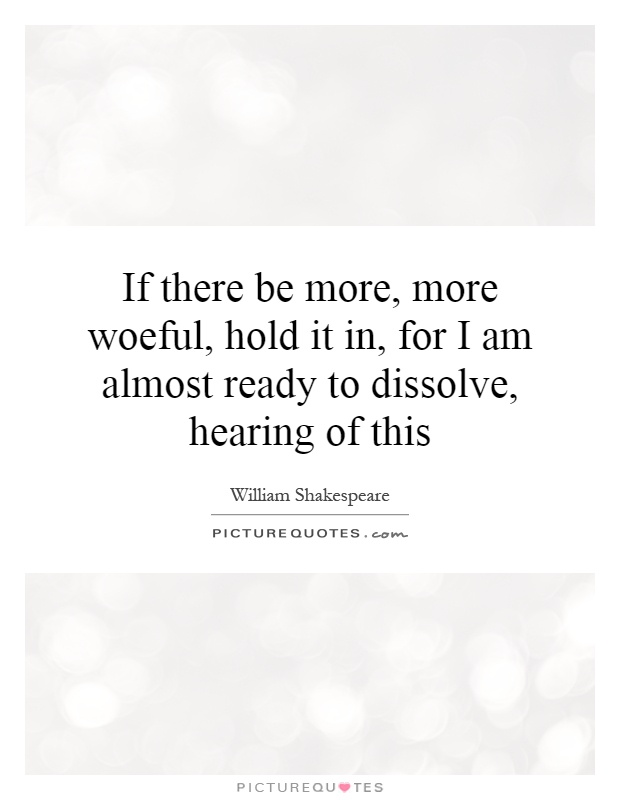If there be more, more woeful, hold it in, for I am almost ready to dissolve, hearing of this

If there be more, more woeful, hold it in, for I am almost ready to dissolve, hearing of this
The quote “If there be more, more woeful, hold it in, for I am almost ready to dissolve, hearing of this” is a powerful expression of overwhelming grief and despair. These words are spoken by King Lear in William Shakespeare’s tragic play, King Lear. The king is expressing his deep sorrow and anguish upon hearing of the betrayal and mistreatment by his daughters, Goneril and Regan.In this moment, King Lear is at his lowest point, feeling utterly broken and defeated. The weight of his daughters’ betrayal and the loss of his kingdom have taken a toll on his spirit, leaving him on the brink of collapse. The use of the word “dissolve” in this context suggests a sense of disintegration and loss of self, as Lear struggles to hold himself together in the face of such overwhelming pain.
Shakespeare’s portrayal of King Lear’s emotional turmoil is both poignant and profound. The king’s vulnerability and raw emotion are laid bare, as he grapples with the harsh realities of his situation. The quote captures the depth of Lear’s suffering and his struggle to cope with the magnitude of his grief.
Throughout the play, Shakespeare explores themes of power, betrayal, and madness, as Lear’s world unravels around him. The quote “If there be more, more woeful, hold it in, for I am almost ready to dissolve, hearing of this” encapsulates the heart-wrenching tragedy of Lear’s story, as he confronts the consequences of his own actions and the cruelty of those closest to him.












 Friendship Quotes
Friendship Quotes Love Quotes
Love Quotes Life Quotes
Life Quotes Funny Quotes
Funny Quotes Motivational Quotes
Motivational Quotes Inspirational Quotes
Inspirational Quotes